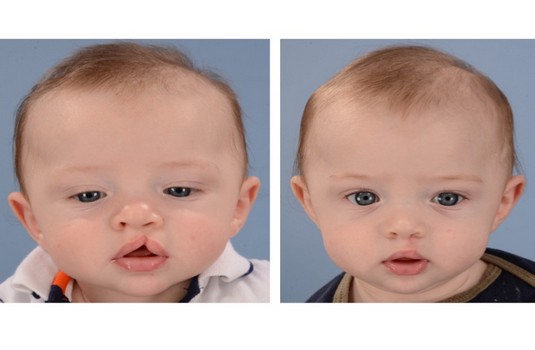Undergoing palate repair surgery is a significant step towards improving quality of life for individuals with cleft palates. In Dubai, where advanced medical facilities and experienced professionals are readily available, the recovery journey can be well-managed with proper guidance. Understanding what to expect after the surgery is crucial for a smooth and effective recovery. This article will provide insights into the recovery process, from the initial post-surgery period to long-term care, tailored to the Palate Repair Surgery in Dubai.
Understanding Palate Repair Surgery
Palate repair surgery, also known as cleft palate repair, aims to correct the cleft or gap in the palate, which can affect speech, feeding, and overall health. The procedure is typically performed by a skilled maxillofacial or plastic surgeon and involves closing the gap in the palate to restore normal function and appearance. In Dubai, the surgery is performed using advanced techniques and technology, ensuring optimal outcomes.
Immediate Post-Surgery Care
Hospital Stay and Monitoring
After the palate repair surgery, patients are usually monitored in a recovery room before being moved to a hospital room. The length of the hospital stay can vary but typically ranges from 1 to 3 days. During this period, medical staff will monitor vital signs, manage pain, and ensure there are no immediate complications. Patients will be given medications to manage pain and prevent infection.
Managing Discomfort
Post-surgery discomfort is common and manageable with prescribed pain medication. Swelling and bruising around the mouth and face are also expected. It is essential to follow the prescribed medication schedule and avoid any activities that might exacerbate discomfort or interfere with healing.
Dietary Adjustments
Soft and Liquid Foods
In the days following the surgery, a special diet is crucial. Patients should consume soft, non-irritating foods and drinks to avoid putting stress on the healing palate. Common choices include soups, yogurt, smoothies, and pureed foods. In Dubai, many hospitals and clinics provide dietary guidance tailored to the patient’s needs.
Avoiding Certain Foods
It is important to avoid hard, crunchy, or spicy foods that could irritate the surgical site. Additionally, avoiding straws and utensils that may create suction or pressure is recommended.
Oral Hygiene and Care
Gentle Cleaning
Maintaining oral hygiene is vital to prevent infection. Gentle brushing with a soft toothbrush and avoiding the surgical area is recommended. In Dubai, dental care professionals often provide detailed instructions on how to care for the mouth post-surgery.
Avoiding Harmful Habits
Patients should avoid habits such as thumb-sucking or sucking on objects that could disrupt the healing process. Smoking and exposure to secondhand smoke should be avoided, as these can hinder healing and increase the risk of complications.
Follow-Up Appointments
Regular Check-Ups
Follow-up appointments with the surgeon are essential to monitor the healing process and address any concerns. These visits typically occur at regular intervals during the first few months after surgery. In Dubai, many healthcare facilities offer specialized follow-up care to ensure that recovery is progressing as expected.
Speech and Feeding Evaluations
In some cases, additional evaluations by speech therapists or feeding specialists may be recommended to assess progress and make necessary adjustments to care plans. Dubai’s healthcare system provides access to a range of specialists to support comprehensive recovery.
Potential Complications
Identifying Warning Signs
While complications are rare, it is important to be aware of potential signs such as excessive bleeding, severe pain, or signs of infection. Patients should contact their healthcare provider immediately if they experience any concerning symptoms.
Long-Term Care
Long-term care involves monitoring the palate’s healing and addressing any issues related to speech or feeding. In Dubai, ongoing support from healthcare professionals ensures that patients receive the necessary care throughout their recovery journey.
Emotional and Psychological Support
Coping with Changes
The recovery process can be emotionally challenging, especially for younger patients and their families. Support from mental health professionals, support groups, and family members can help navigate the emotional aspects of recovery. Dubai offers various counseling and support services to assist individuals and families during this time.
Celebrating Progress
Recognizing and celebrating milestones, such as improved speech or successful dietary adjustments, can positively impact recovery. Encouraging patients and their families to acknowledge these achievements can foster a more positive recovery experience.
Conclusion
Recovery after palate repair surgery is a journey that requires patience, care, and adherence to medical advice. In Dubai, patients benefit from advanced medical care, skilled professionals, and comprehensive support systems. By understanding the recovery process and following recommended guidelines, individuals can look forward to a successful recovery and improved quality of life. Whether it’s managing immediate post-surgery care or seeking long-term support, being well-informed and prepared will help ensure a smoother and more effective recovery journey.





Comments